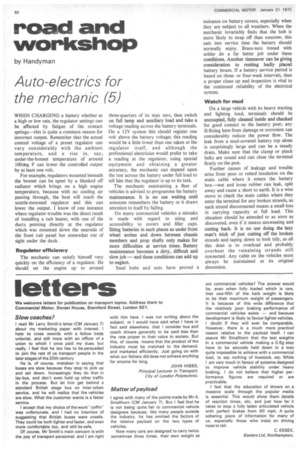Slow coaches?
Page 52

If you've noticed an error in this article please click here to report it so we can fix it.
I read Mr Larry Smith's letter (CM January 7) about my marketing paper with interest. I hate to cross swords with a fellow trade unionist, and still more with an officer of a union to which I once paid my dues, but really. I feel that he too has to be persuaded to join the rest of us transport people in the later stages of the 20th century.
He is, of course, mistaken in saying that buses are slow because they stop to pick up and set down. Increasingly they do that in lay-bys, and don't even hold up other traffic in the process. But let him get behind a standard British stage bus on inter-urban service, and he will realize that the vehicles are slow. What the customer wants is a faster service.
I accept that my choice of the word "coffin" was unfortunate, and I had no intention of suggesting that -British buses were unsafe. They could be both lighter and faster, and even more comfortable too, and still be safe.
Of course, Mr Smith's main concern is with the pay of transport personnel, and I am right with him here. I was not writing about the subject, or I would have said what I have in fact said elsewhere, that I consider bus and coach drivers generally to be paid less than the rate proper to their value to society. But this, of course, means that the Product of the industry must be matched to the demand, and marketed efficiently. Just going on with what our fathers did does not achieve anything for anyone for long.
JOHN HIBBS, Principal Lecturer in Transport, City of London Polytechnic.










































































































